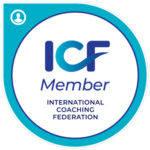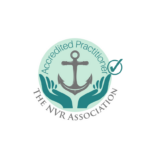Coaching Agreement
Cancellation policy:
Once the coaching dates are set it is the responsibility of the coach and coachee to make sure they are available to attend all sessions. Rescheduling will only be considered in the event of extenuating circumstances. Refunds/rescheduled appointments will not be given for missed session unless agreed otherwise in advance of the appointment (not less than 24 hours’ notice).
Client acknowledges that the coaching is a comprehensive process that may involve different areas of his or her life, including, work, finances, health, relationships, education and recreation, parenting, and family. The client agrees that deciding how to handle these issues, incorporating coaching principals into those areas and implementing choices is exclusively the Clients responsibility.
Client is solely responsible for the creating and implementing his/her own physical mental and emotional wellbeing, decisions, choices, actions, and results arising out of or resulting from the coaching relationship and his/her coaching calls and interactions with the coach. As such the client agrees that the Coach is not and will not be liable or responsible for any actions or inactions or for any direct or indirect result of any services provided by the coach. Client understands coaching is not therapy and does not substitute for therapy if needed and does not prevent cure or treat any mental disorder or medical disease.
Client acknowledges that coaching does not involve the diagnosis or treatment of mental health disorders as defined by the American Psychiatric Association and that coaching is not to be used as a substitute for counselling, psychotherapy, psychoanalysis, mental health care, substance abuse treatment, or other professional advice by legal, medical, or other qualified professionals and that it is the Clients exclusive responsibility to seek such independent professional guidance as needed. If Client is currently under the care of a mental health professional, it is recommended that the client promptly inform the mental health care provider of the nature and extent of the coaching relationship agreed upon by the Client and the Coach.
Client can invite the professional (that they are involved with) and coach to consult/exchange information to ensure a coordinated consistent approach to Health and Wellbeing is established. A written consent form will be required before any conversation/visit can take place. There may be an extra agreed charge for this service.
Style of coaching:
Description of coaching: Style of coaching:
I. 1.1 Non-Directive or
1.2 Instructional when skills teaching is involved.
II. Goal -focused: Coaching will question a client about their goals in order to clarify:
- What they really want?
- How are they going to get there?
- What happens once they do get there?
III. Strategic planning for achieving those goals. (“Coaching Services”).
IV. Democratic coaching: The coachee will be encouraged to adopt a ‘self-coaching’ attitude. The coach’s role in this process is to allow the client to suggest ways of how they may reach their goals.
V. Permission to interrupt and use silence.
I may have to challenge your thinking at times, and I may have to be very direct, with the intention to evoke transformation.
Client’s responsibilities:
- To attend coaching sessions as agreed.
- To come with an agenda. To set and pursue what they deem meaningful goals.
- Be ready to be challenged with the purpose of exploring or checking the reality of current thoughts or stories.
- Be ready, to be honest, and open with the purpose of getting the best results.
- Be willing to trust the process and possible changes in their own agenda as a result of the exploration and new discoveries about themselves.
Coach’s responsibilities:
- To manage the coaching process (including timekeeping).
- To undertake regular professional coaching supervision and keep my skills up to date.
- To maintain confidentiality (subject to certain exemptions such as Child Protection/Vulnerable persons/or if a crime is being committed).
- To create a non-judgmental space for the client and coached to develop a relationship that allows the client to explore options and decide on goals and actions.
- To attend coaching sessions primed, prepared, and ready to support and engage with the client.
- To adhere to the WACN code of ethics.
Confidentiality: The Coach recognises that anything the Client/Coachee shares with them is regarded as confidential. The coach will not disclose or use the Clients/Coachee information unless failure to disclose will be in breach of Our Duty of Care obligation, Child Protection Legislation, Vulnerable Persons Legislation or support a criminal act. Data Protection: All information will be kept in compliance with the relevant Data Protection Legislation in Ireland.
Child protection/Designated Officer. Although it is very rare should concerns in respect of Child Protection or Protection of Vulnerable Adults come to the attention of Life Coach during the coaching session/parenting programmes we are obligated to report the concern to Tusla/HSE. The concerns would be discussed with Parent(s)/Guardians prior to forwarding any report.
Release of Information The Coach engages in training and continuing education pursuing and/or maintaining ICF & WACN Governing bodies/Credentials. That process requires the names and contact information of all Clients for initial registration/verification by ICF. By agreeing to the terms and conditions of this agreement, you agree to have only your name, contact information and start and end dates of coaching shared with ICF staff members and/or other parties involved in this process for the sole and necessary purpose of verifying the coaching relationship, no personal notes will be shared. They may contact you to confirm you have received services.
Addendum for Adolescents coaching:
Confidentiality: If you are referred to coaching by a Mentor/Another service/or your Parents please be assured your session content will be confidential. The only information that will be shared with others (except in the case where you are at risk, others are at risk or there are child protection issues) will be the number of sessions you attended.
Should concerns arise within the session re: your safety, the safety of others or Child Protection Concerns/Vulnerable Persons:
The concerns will be brought to your attention. We will discuss the issue and the mandatory forward informing or reporting to relevant people including: Parents/Guardians/Tusla.
Addendum for Non Violent resistance Programmes:
Statement of intent: Facilitators
As facilitators we will try to:
- be honest and open during all activities
- encourage diversity in group work
- provide the opportunity for equal participation
- let the group know – if possible – when a group member has to miss a meeting or struggles with their motivation to continue
- explore solutions to difficult situations
- present ideas clearly and precisely
- keep discussions on track
- make sure that there is only one discussion at a time
- encourage everyone to participate in exploring solutions to difficult situations
- give constructive feedback
- connect to each other’s ideas.
Facilitators will also:
- Meet for 15 minutes before each session and for 30 minutes after each session
- Attend supervision sessions.
- Participate in the evaluation of the programme after the review
- Participate in booster sessions for graduate parents.
Confidentiality statement:
Facilitators’ responsibility
We will keep your personal information confidential and secure because this is:
- A legal obligation
- Something we must do under our professional codes of conduct
- Part of our contract (if contracted by service providers). If we break confidentiality we can loose contracts/or be excluded from tendering for future contracts.
We will only break your confidence if we think that you or someone else is at risk of harm.
Parents’ responsibility
- You will be talking about your family to other people in the NVR programme and hearing about their situations. This is an important part of the programme.
- You are free to share anything you have said about yourself outside the group but you are not allowed to share other people’s information outside the group.
We agree that we will all take care when discussing the NVR sessions outside the group and will not use other people’s names or say anything that could identify them or their children.




